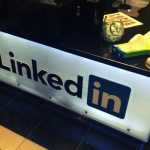 Your resume isn’t a place for modesty; it’s a chance to show companies all the awesome things you’ve done—and what you can do for them if given a chance. Take the opportunity to liven things up a bit. Weak, vague or overused verbs can actually diminish the excellent work you did at your last job, so choose words that more accurately reflect what you do.
Your resume isn’t a place for modesty; it’s a chance to show companies all the awesome things you’ve done—and what you can do for them if given a chance. Take the opportunity to liven things up a bit. Weak, vague or overused verbs can actually diminish the excellent work you did at your last job, so choose words that more accurately reflect what you do.
“It’s critical to choose active, industry-appropriate action verbs,” says Linda Hollenback, a brand and career strategist who owns Philadelphia-based Hollenback Consulting. “Well-chosen lead action words make the difference between highlighting your skills and undermining your contribution.”
To help your credentials pack the maximum punch, Monster created a list of strong action verbs to make your resume more powerful.
Action verbs for Communication Skills
Instead of: talked, led, presented, organized
Use: addressed, corresponded, persuaded, publicized, reconciled








